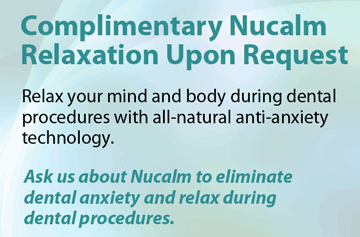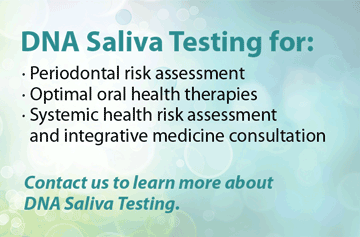Insulin is a vital hormone that regulates blood sugar (glucose) in your body. As the food you eat is broken down into sugar, the sugar enters your bloodstream, signaling the pancreas to release insulin. Insulin helps the sugar enter your body’s cells so it can be used for energy. Insulin also signals the liver to store blood sugar for later use. As blood sugar enters your cells, levels of the sugar decrease, signaling the pancreas to reduce insulin release.
When this system works smoothly, blood sugar metabolism remains in equilibrium, and you are at low risk of developing type 2 diabetes.
What happens when you become insulin resistant?
When a lot of blood sugar is constantly entering the bloodstream, the pancreas constantly pumps out more insulin to move sugar into your cells. Over time, the cell response to the insulin diminishes. The pancreas makes more insulin to try to force your cells to respond, but eventually the pancreas can’t keep up and your blood sugar keeps rising.
Too much blood sugar in your body results in the excess being stored as body fat, and this leads to a more serious stage known as prediabetes and eventually type 2 diabetes.
- Prediabetes — Approximately 88 million American adults—more than 1 in 3—have prediabetes. Of those with prediabetes, more than 84% don’t know they have it. Prediabetes puts you at increased risk of developing type 2 diabetes, heart disease, and stroke.
- Type 2 diabetes – Type 2 diabetes is a more serious condition where high blood sugar is damaging to the body and can cause other serious health problems, such as heart disease, vision loss, kidney disease, and more. Insulin resistance comes in degrees. The more insulin resistant a person with type 2 is, the harder it will be to manage their diabetes because more medication is needed to get enough insulin in the body to achieve target blood sugar levels.
Note that insulin resistance isn’t a cause of type 1 diabetes, but people with type 1 who are insulin resistant will need higher insulin doses (medication) to keep their blood sugar under control.
Is insulin resistance affected by your gum health?
Yes. Among the ways to help the body be more receptive to insulin is maintaining optimal oral health. Patients who have insulin resistance should seek regular dental care and be screened for signs of gum inflammation, and they should receive immediate treatment for any signs of gum disease. That’s because research over the last 20 years has demonstrated that:
- Gum disease can negatively affect your blood sugar control.
-
- When gums are irritated and inflamed bacteria enter the bloodstream, and diabetes is an inflammatory disease made worse by bacteria circulating in the body.
- Diabetics tend to have more incidences of gum disease.
- Diabetics tend to have more chronic gum disease.
- Diabetes makes it more difficult for your body to fight infection.
- If you control your blood sugars well, you will be less likely to have gum disease and vice versa.
Learn more about the correlation between blood sugar control and oral health by reading Diabetes & Periodontal Health – Dr. Isaac Comfortes, D.D.S. (isaaccomfortesdds.com).
“We are one of only a few dental practices in southern California to offer the Perio Protect System, which has been proven in clinical studies to kill harmful bacteria within 72 hours,” says Dr. Isaac Comfortes of Total Health Dentistry of Encino. “We are among a few dental practices in the nation to focus on the total health of our patients. We define our dental practice purpose as advancing systemic health through our fine clinical dentistry, and we spend exceptional one-on-one time in conversation with our patients to learn about their health history, their family health history, and how we can help. We also communicate and collaborate well with medical providers to provide a network of support.”
How else can you reverse insulin resistance?
We’ve just reviewed how optimal oral health and the treatment of any signs of gum disease is important in defeating insulin resistance. Here are the top recommended additional ways
- Exercise — Become physically active, ramp up that activity, and maintain regular exercise routines.
- Nutrition — Reduce weight with a nutritious, low carbohydrate, sugar-free diet. Be mindful that beer and other alcoholic beverages add carbohydrates and sugar to your diet
- Stress Reduction – Be mindful of psychological and physiological stress and intentionally reduce this stress in healthy ways.
- Rest – Put yourself to sleep on a regular schedule that allows you to have around eight hours of sleep per night. Be mindful of how when you exercise during the day, how late you allow yourself to stay up, what you think about, and how what you eat and drink affects your quality of sleep. If you snore at night and are experiencing episodes of oxygen depression (obstructive sleep apnea), seek treatment that will allow you to rest fully and your body to restore itself overnight.
- Primary Medical Exams — Discuss with your primary physician changes occurring in your semi-annual blood test scores and your need for prediabetes and type 2 diabetes assessment.
- Adhere to Medical Advice — Adhere to the recommendations of your primary physician and consult with a referred endocrinologist to learn what treatment and follow up protocol is most appropriate for your health situation. Take your situation seriously; it’s a matter of life.
How can Total Health Dentistry of Encino, California aid in your fight against insulin resistance?
Many of our dental patients have had success in lowering their tested blood sugar levels by regular assessment of their gum health and accepting gum treatment when needed, striving for optimal home oral hygiene, and living healthier lives through exercise, nutrition, elimination of alcohol and tobacco, and stress reduction.
“We partner with our patients to develop understanding of their risk and sensitivity to insulin resistance,” says Dr. Isaac Comfortes of Total Health Dentistry of Encino. “We don’t take systemic health lightly, and neither should you. You are a special person deserving of the best information and care we can provide. New patients are always welcome, and we genuinely care about your medical history and how we can improve your total health as we provide evidence-based dental treatment.”





 The general, cosmetic and reconstructive dental practice of Encino dentist Dr. Isaac Comfortes is devoted to restoring optimal oral health, which supports whole body health and enhances the natural beauty of smiles.
The general, cosmetic and reconstructive dental practice of Encino dentist Dr. Isaac Comfortes is devoted to restoring optimal oral health, which supports whole body health and enhances the natural beauty of smiles.